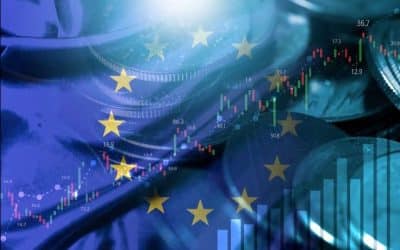Trump prolongs uncertainty over tariffs and causes double damage to the economy and stock markets

Redacción Mapfre
The US administration has once again postponed the truce for the tariffs that expired on Wednesday, thus prolonging a situation of global concern that has not only consequences on the stock markets, but also on the real economy. Beyond the terms of future trade agreements, “what is hurting us is uncertainty, the constant announcement of new deadlines,” explains Alberto Matellán, General Manager of La Financière Responsable, MAPFRE's French asset management subsidiary.
The consequences of this lack of clarity on the global stage affect the market and investors, but especially business leaders, who delay their investments due to uncertainty about the future context. Therefore, tariffs are not only a matter of stock market volatility, but they are also already affecting economic growth, Alberto Matellán said this Wednesday.
The President of the United States has also threatened to impose more tariffs on copper, which poses a risk due to its widespread use across numerous sectors. However, Matellán notes that in recent months, Trump has frequently employed bluffing tactics, and therefore urges caution and advises against taking risks until decisions are finalized.
The US government has made optimistic announcements about revenues obtained from tariffs so far this year, which it expects to even triple in the remainder of the year, but Matellán compares these figures with the deficit and debt of the United States, which needs to be refinanced, and believes that they do not resolve this issue, which is its biggest problem.
“In the economy, we have to try to see all the impacts,” says Matellán, and although new tariffs may increase revenue, their greatest effect will be on economic activity. “If we impose tariffs on copper, it will become more expensive for the companies that use it. That will translate into higher inflation or reduced profit margins for those companies, and it will have a negative impact on the U.S. economy,” the executive explains by way of example.
A good time to go public?
One of today’s top economic stories has been Cirsa’s initial public offering, one of the few listings on the Spanish stock market this year. Matellán believes that the current moment “is not a bad time to go public, because there is liquidity in the market, although there's also a lot of volatility, and that doesn't help either.”
But beyond the specific case, he believes that what investors should assess is whether the IPO makes sense for the company going public, and what it plans to do with the capital raised—something that requires an individual, case-by-case analysis.
Lastly, Citi and JP Morgan have released forecasts predicting a future market correction. This is a scenario that Matellán does not rule out, but MAPFRE is not currently working with, as the economic fundamentals are not negative. The role of a manager, stated by the General Manager of La Financière Responsable, “should not be to try to predict the future, but to make the most reasonable decisions at all times.”


